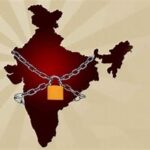Kolkata Law College Gang Rape Case: A Chronicle of Premeditated Brutality and Systemic Failure
The alleged gang rape of a 24-year-old law student at South Calcutta Law College has ignited unprecedented outrage across Kolkata, exposing not just the brutality of the crime but deep-rooted institutional failures. As investigations progress, alarming details reveal a meticulously planned assault targeting the victim since her first day at the institution. This case has become a grim symbol of the safety crisis facing women in West Bengal, triggering mass protests and political warfare.

Premeditated Terror: Inside the Gang Rape Plot.
Police investigations confirm the June 25 assault was no spontaneous crime but a calculated act of vengeance. The prime accused—Monojit Mishra (a former student and contractual college employee), Zaib Ahmed (first-year student), and Pramit Mukherjee (current student)—had plotted for days to “torture” the victim. Mishra had targeted her since her admission day, with police stating: “The trio had been plotting for several days to carry out this torture on the victim. We have found the victim was targeted by the prime accused from her very first day at college”.
The accused trio had a documented history of sexually harassing female students, filming assaults to blackmail victims—a pattern suggesting institutional blindness. Security footage shows the fourth accused, a college guard, present during the assault yet failing to intervene. Police are now scouring mobile devices for evidence of recorded assaults and shared clips. The attack occurred after the survivor reportedly rejected Mishra’s advances.
Institutional Collapse: Campus Security and Accountability.
The college’s security apparatus collapsed catastrophically:
- Mishra, despite four prior arrests since 2011, was employed without verification
- Governing body member Ashok Deb admitted security agency lapses, promising show-cause notices.
- The college terminated Mishra’s employment and expelled Ahmed and Mukherjee, pledging to revoke Mishra’s bar council membership
Medical reports confirm physical trauma: abrasions on the victim’s neck and chest, though no genital injuries were found. Forensic analysis remains pending. The security guard’s arrest highlights systemic negligence—CCTV placed him at the crime scene, yet he offered “incoherent” statements during interrogation.
City in Revolt: Protests and Political Firestorm

Kolkata erupted in fury as news spread:
- Massive demonstrations flooded Kasba police station and college vicinity, led by students and women’s groups demanding “fast-track justice”
- BJP leaders slammed CM Mamata Banerjee: “No woman is safe in West Bengal… criminals are appointed in colleges without verification”
- A BJP fact-finding team accused the TMC of “criminalising academics,” noting Mishra’s political links to the ruling party2
- Protesters carried placards reading “Justice Delayed is Justice Denied” and “Campus Safety Failure”
Political tensions escalated as BJP leaders questioned Banerjee’s governance: “Why are crimes against women rising in a woman-led state worshipping Goddess Durga?”. The parallels to last year’s RG Kar Hospital rape case amplified public distrust in Bengal’s law-and-order machinery.
Safety in Shambles: Women’s Security Crisis in Bengal
This case exposes systemic vulnerabilities:
- Campus insecurity: Educational institutions lack verified staff hiring and surveillance protocols
- Political patronage: Accused with criminal histories secure institutional positions5
- Evidence handling: Police scramble to recover mobile footage that could implicate others13
- Pattern of violence: Similar high-profile cases (like RG Kar rape) reveal recurring failures5
The Special Investigation Team (SIT) is questioning 25+ witnesses present during the assault, seeking to reconstruct the timeline3. Meanwhile, Kolkata Police Commissioner assured BJP delegates of “swift punishment,” though public skepticism persists5.
The Long Road to Justice

As Kolkata grapples with trauma, this case represents a critical juncture for West Bengal. The expulsion of accused students and termination of staff are reactive measures—not systemic solutions. With forensic results pending and mobile evidence still missing, the legal battle has just begun. What remains undeniable is the chilling reality: when educational institutions become crime scenes, no woman is safe. Until Bengal addresses political patronage in appointments, implements campus security overhauls, and fast-tracks sexual assault trials, the cycle of violence will persist. The protests must evolve into policy reform—or risk becoming mere background noise to the next tragedy.











Justice⚖